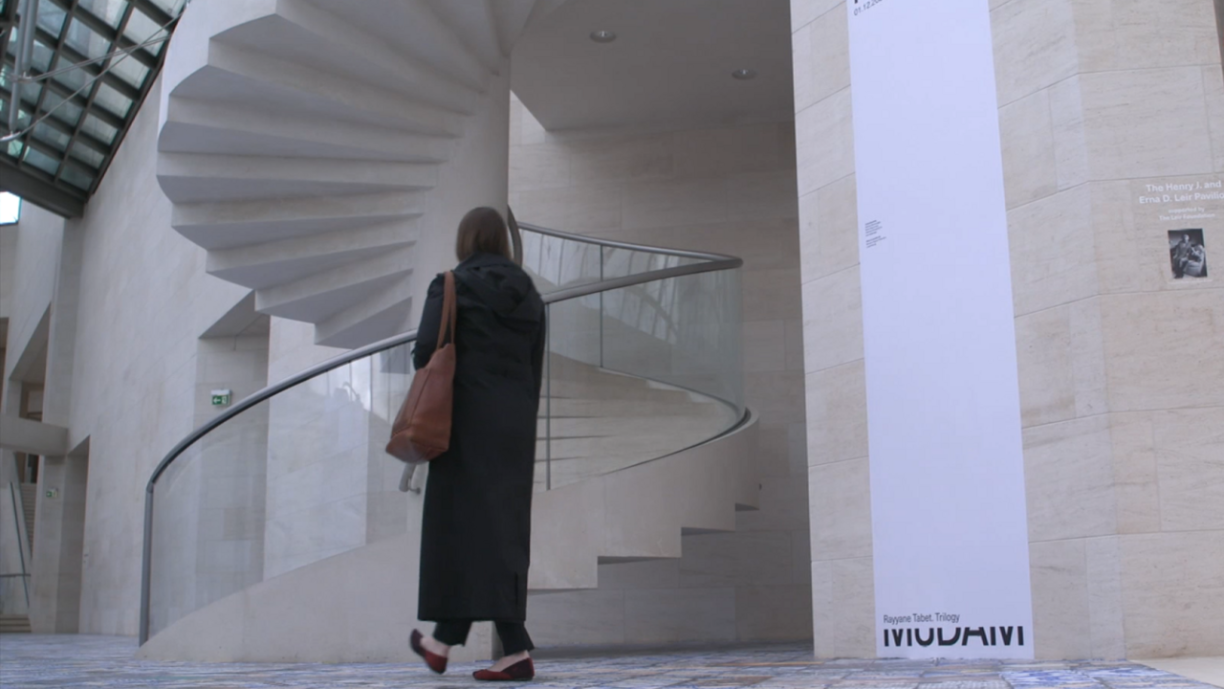
Internal documents obtained by our colleagues from RTL.lu reveal that employees of the Grand Duke Jean Museum of Modern Art (MUDAM) have repeatedly raised concerns about director Bettina Steinbrügge’s leadership over the past two years. Multiple staff members allege a toxic work environment marked by aggression, an emotionally unstable director, and a climate of “chaos and fear.”
The complaints, described in the files as consistent rather than isolated, also accuse Steinbrügge of favouritism and harassment, including pitting departments against one another. At least four personnel departures since 2022 are reportedly linked to her behaviour, including the exit of several department heads. In total, half a dozen staff members have left MUDAM since Steinbrügge assumed leadership in spring 2022.
The documents question Steinbrügge’s managerial competence, citing a lack of clear directives, vision, and budgetary planning. Employees lament an absence of structured procedures or detailed plans for exhibitions, with one file describing operations as “rather chaotic.” Other criticisms include a “total absence of management” and a “short-sighted approach,” with contradictory instructions reportedly exacerbating staff workloads.
Further concerns centre on Steinbrügge’s limited presence in Luxembourg. At one point, the museum’s council restricted her travel, demanding greater on-site engagement. A 2024 note explicitly states: “Bettina must take care of MUDAM and ‘take an interest’ in MUDAM and its staff.” Another entry underscores priorities: “MUDAM must take priority, not trips abroad. Tasks must be addressed urgently – starting at home. Dubai cancelled.”
In addition to internal management issues, questions have emerged regarding procurement and hiring practices under Director Steinbrügge’s leadership. Documents reveal two particularly contentious cases involving external service providers. First, the museum arranged and paid for a Milan-based curator’s partner to travel to Luxembourg, providing both accommodation and payment for photographing MUDAM events. Second, the contract for the museum’s website redesign went to a German company with which Steinbrügge had previous professional connections from her time at Hamburg’s Kunstverein, and with whose members she maintains friendly social media contact.
The bidding process for the website contract has drawn particular scrutiny. While four companies initially submitted proposals, only the selected firm – the one with Steinbrügge’s existing connections – submitted a revised quotation that ultimately reduced their initial price by approximately half. Former council president Patrick Majerus explicitly questioned in internal communications whether all bidding companies had been given equal opportunity to revise their proposals, or if this option had been selectively offered only to the ultimately chosen firm.
The administrative council took formal action in spring 2024, sending a strongly worded letter to Steinbrügge addressing both the staff complaints and the evident lack of management. The council outlined several specific requirements, demanding significant and immediate improvements to the currently “non-existent” management structure.
They mandated that the director submit detailed budgets and comprehensive step-by-step plans for upcoming exhibitions within one month, while also insisting on fundamental changes to her personal management style. The letter contained unambiguous language about the seriousness of the situation, stating bluntly that “the situation is dire” and emphasising MUDAM must transform into “a workplace free from fear.”
However, Steinbrügge failed to fully meet these requirements within the specified timeframe. During this period of supposed reform, the administrative council continued to receive additional complaints about the director’s conduct, further complicating efforts to stabilise the museum’s operations and work environment.
By summer 2024, the administrative council explored involving the state’s psycho-social services, consulting with advisors from the Ministry of Culture. When this proved beyond the service’s mandate, the council engaged an external consultancy firm that autumn, aiming to address governance issues and improve the workplace environment.
The effectiveness of these measures came into question in January 2025 when council president Patrick Majerus resigned – the second council departure in a little over a year, following curator Danièle Igniti’s late-2023 resignation. Minister of Culture Eric Thill initially characterised Majerus’ departure as personal, telling Paperjam magazine he would not comment further.
However, when the newspaper Luxemburger Land published excerpts from Majerus’ resignation letter, the minister acknowledged in his response to a parliamentary question submitted by MP Djuna Bernard of the Green Party (Déi Gréng) that “reasons linked to the institution’s internal workings” had prompted the resignation.
In fact, Majerus had made his reasons very clear in his resignation letter to the minister:
“Since December 2023, we’ve faced complaints about the director, alarming staff turnover, and management deficiencies. Numerous employees have expressed distress, compromising the museum’s mission.”
Majerus further alleged the director had repeatedly made false accusations against him, stating: “In each case, I provided written evidence demonstrating these claims were unfounded.”
Pressed for comment, the Ministry of Culture avoided addressing specific allegations. Minister Thill’s communication office offered only broad statements, citing “ambitious programming and team growth increasing management complexity,” while attributing challenges to “architectural limitations, high energy costs, and budget constraints.”
While rising energy costs in 2022 did affect museum finances, MUDAM’s structural challenge – allocating more of its €8-9 million annual state endowment to building costs than programming – predates Steinbrügge’s tenure and was managed by previous directors. Additionally, contrary to ministerial claims about “team growth”, staff numbers have actually slightly decreased in recent years.
Newly appointed administrative council president Jean-Paul Olinger, who assumed his role just two weeks prior, largely echoed the ministry’s position while acknowledging institutional responsibility. He emphasised the ongoing external audit of governance and procedures, stating: “The consultancy’s report is nearing completion, and its findings will inform our subsequent decisions and potential organisational changes.”
Addressing contract-awarding concerns, Olinger acknowledged management’s discretionary powers within regulatory frameworks, but stressed that “we’re ensuring full compliance through active monitoring.”
Bettina Steinbrügge herself did not respond to RTL’s enquiries by deadline. Neither MUDAM, nor the Ministry of Culture have contested the reported allegations.